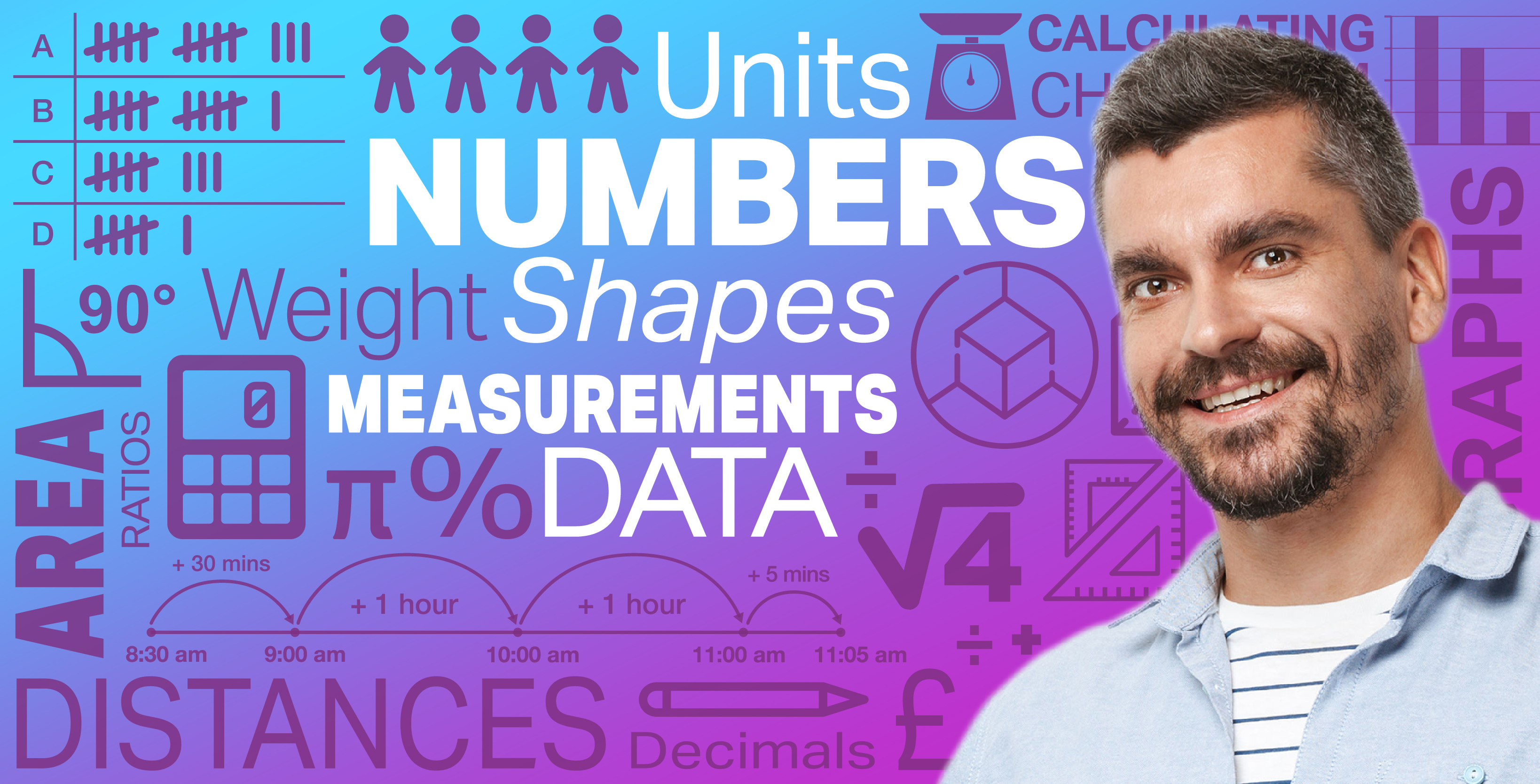Home » Course Layouts » Free Course Layout Udemy
Having good maths skills are important for everyday life. In fact, you may have never noticed how often you use maths on a day-to-day basis.
4
4
31
English
English [CC]
- Learn basic syntax that can apply to any language.
- Learn what is a programming language and the basic concepts for beginners.
- Understand what is Javascript in it's truest form.
- Know the basic syntax of Javascript.
- Know some hidden quirks in Javascript.
Description
This course is an introduction to Level 2 Essential Skills in maths that’s designed to inspire you to improve your current maths skills and help you to remember any areas that you may have forgotten.
Working through the examples and interactive activities in this course will help you to, among other things, calculate how much paint you'll need for decorating, convert currencies or make progress in your career or further education. To complete this course you will need access to a calculator, a notepad and pen, and a protractor.
Enrolling on this course will give you the opportunity to earn an Open University digital badge. The badge is a great way to demonstrate your interest in the subject. What you learn by completing the course will really help if you wish to enrol on a formal qualification.
Once you are signed in, you can manage your digital badges online from your OpenLearn Profile. In addition, you can download and print your OpenLearn Statement of participation – which also displays your badge.
This course has been produced as part of the Department for Education’s Flexible Learning Fund , the Higher Educational Funding Council for Wales and with the kind support of Dangoor Education , the educational arm of The Exilarch’s Foundation.

This course was written by Kerry Lloyd, Frances Hughes and Tracy Mitchell at Coleg Cambria, in partnership with Addysg Oedolion Cymru | Adult Learning Wales, Coleg Gwent, the NPTC Group of Colleges and The Open University, and in collaboration with Joanne Davies, West Herts College, using materials belonging to the Open School Trust Ltd (trading as the National Extension College), and in partnership with the Bedford College Group and Middlesbrough College.

Earn this free Open University digital badge if you complete this course! The badge can be displayed, shared and downloaded as a marker of your achievement. The badge is awarded for completing the course and passing the quizzes.
Course learning outcomes
After studying this course, you should be able to:
- Understand practical problems, some of which are non-routine
- Identify the maths skills you need to tackle a problem
- Use maths in an organised way to find the solution you’re looking for
- Use appropriate checking procedures at each stage
- Explain the process you used to get an answer and draw simple conclusions from it.
Course content
- Introduction and guidance 00:15:00
- What is a badged course? 00:10:00
- How to get a badge 00:10:00
-
- Introduction 00:15:00
-
- Four operations 00:20:00
- Expressing a remainder as a decimal 00:15:00
- Interpreting answers when dividing 00:15:00
- Dealing with decimals 00:15:00
- Dealing with large numbers 00:15:00
- Calculations with large numbers 00:20:00
- Fractions 00:05:00
- Simplifying fractions 00:15:00
- Writing a quantity of an amount as a fraction 00:45:00
- Fractions of amounts 00:30:00
- Fractions, decimals and percentages 00:05:00
- Converting between percentages, decimals and fractions 00:20:00
- Changing a fraction to a percentage 00:15:00
- Changing a fraction to a decimal 00:20:00
- Formulas 00:15:00
- Order of operations 00:20:00
- Formulas in practice 01:00:00
- Checking your answers 00:20:00
- Session 1 quiz 00:10:00
- Session 1 summary 00:15:00
- Units of measure 00:03:00
- Converting units of measure in the same system 01:00:00
- Time, timetables and average speed 00:10:00
- Calculating with time and timetables 00:30:00
- Converting units of time 00:15:00
- Average speed 00:30:00
- Reading scales 00:07:00
- Scale examples 00:10:00
- Scales and measuring instruments 00:45:00
- Using conversion scales 00:20:00
- Session 2 quiz 00:03:00
- Session 2 summary 00:10:00
- Perimeter 00:07:00
- Perimeter of simple shapes 00:25:00
- Perimeters of shapes with missing lengths 00:25:00
- Circumference of a circle 00:20:00
- Scale drawings and plans 00:25:00
- Scale drawing method and problems 00:45:00
- Session 3 quiz 00:03:00
- Session 3 summary 00:10:00
- Bar charts 00:20:00
- Features of a bar chart 00:25:00
- Interpreting bar charts 00:45:00
- Line graphs 00:10:00
- Drawing line graphs 00:20:00
- Interpreting line graphs 00:20:00
4
- 5 stars0
- 4 stars1
- 3 stars0
- 2 stars0
- 1 stars0













It is wonderful Math Course for every day life.